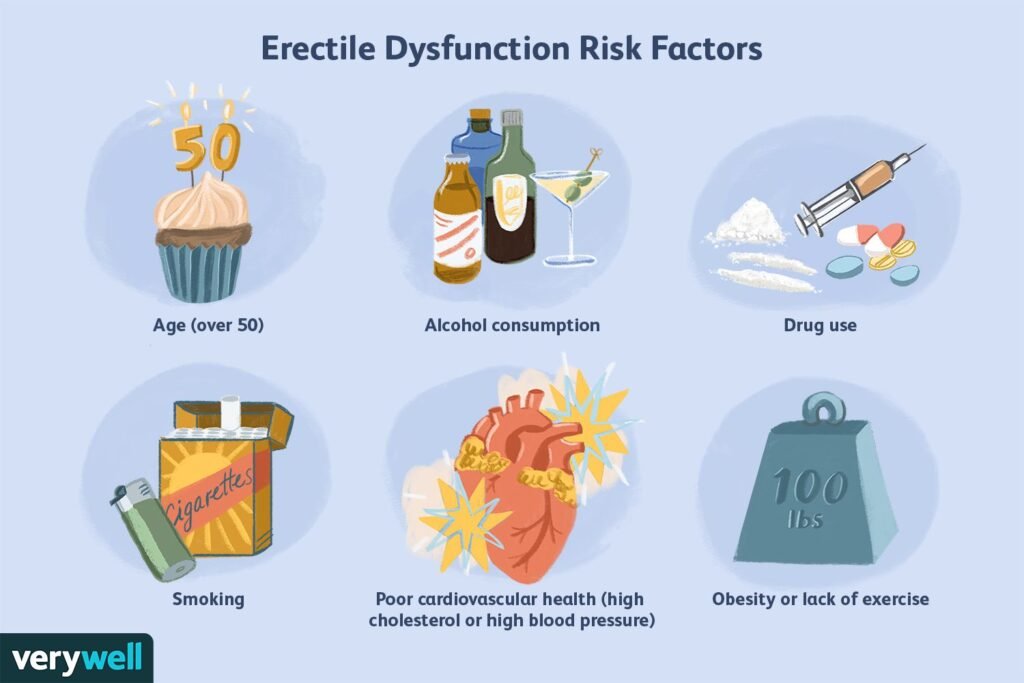How much coffee is good for men? That’s a question many of you may have pondered while sipping your morning brew. Coffee is one of the most popular beverages worldwide, consumed by millions to jumpstart their day, enhance workout performance, or just relax with friends. But how much coffee is considered optimal for men’s health? Is there a threshold you should be aware of to maximize the benefits while minimizing potential risks? We’re here to pour out the facts for you.
The Allure of Coffee
Coffee isn’t just a morning ritual for many of you; it has a range of health benefits due to its high levels of antioxidants and essential nutrients like riboflavin (vitamin B2), niacin (vitamin B3), magnesium, and various phenolic compounds. However, it’s crucial to understand how much is beneficial and where you might need to draw the line.
Coffee’s Primary Components
Let’s break down what goes into your cup of Joe:
- Caffeine: The primary stimulant that makes you feel more awake.
- Antioxidants: Help fight off free radicals in your body.
- Essential Nutrients: Include vitamins and minerals beneficial for your health.
Understanding these can guide you to make informed decisions about your coffee intake.
Benefits of Coffee for Men’s Health
Coffee consumption has been linked to various health benefits, many of which are particularly pertinent to men’s health. Here are some primary advantages:
Boosted Mental Alertness
Caffeine is a well-known stimulant that blocks adenosine, a neurotransmitter responsible for making you feel tired. This increases levels of other neurotransmitters like dopamine and norepinephrine, enhancing neuronal firing and mental alertness.
Enhanced Physical Performance
Caffeine stimulates the nervous system and increases epinephrine (adrenaline) levels in your blood, preparing your body for intense physical exertion. For those of you who are fitness enthusiasts, a cup of coffee could be that extra push for your workout.
Improved Liver Health
Moderate coffee consumption has been linked to a lower risk of liver diseases, including liver cirrhosis and liver cancer. Given that men are generally at higher risk for liver conditions, this is a notable benefit.
Lower Risk of Certain Cancers
Studies suggest that coffee may reduce the risk of certain types of cancer, such as colorectal and prostate cancer, two of the most common cancers affecting men.
Better Heart Health
While excessive caffeine can elevate heart rate and blood pressure, moderate coffee consumption has been linked to a lower risk of heart disease, potentially due to its antioxidant properties.

Potential Risks and Drawbacks
While coffee has its perks, it’s not without potential downsides. Let’s explore some risks you should be aware of:
Sleep Disruption
Caffeine can significantly affect your sleep quality and quantity if consumed too late in the day. Poor sleep can lead to a range of issues including decreased cognitive function and increased stress levels.
Digestive Issues
For some, coffee can lead to digestive problems like acid reflux, gastritis, or irritable bowel syndrome (IBS). If you have a sensitive stomach, this is something you should consider.
Increased Anxiety
Caffeine is a stimulant, and, in high quantities, it can contribute to increased anxiety and jitteriness.
Potential for Addiction
Given its stimulating effects, you could become reliant on caffeine, leading to dependency and withdrawal symptoms like headaches and fatigue when you skip your daily cup.
How Much is Too Much?
Balancing the benefits and risks involves figuring out the optimal amount of coffee for your health. The general consensus among experts is that 3-4 cups per day is a safe and beneficial amount for most people. However, individual tolerance can vary.
Daily Caffeine Intake
The FDA suggests a daily limit of 400 milligrams of caffeine, which is roughly equivalent to 4 cups of brewed coffee. Let’s outline what this might look like:
| Beverage | Caffeine Content (mg) |
|---|---|
| Brewed Coffee (8 oz) | 95 |
| Espresso (1 oz) | 63 |
| Instant Coffee (8 oz) | 62 |
| Decaf Coffee (8 oz) | 2 |
From this, you can easily calculate your daily intake depending on your coffee choices.
Individual Factors
Factors like age, body weight, and overall health can influence how much caffeine is optimal for you. For instance, older adults may metabolize caffeine more slowly, and those with certain health conditions may need to restrict their intake further.

Coffee Timing
When you drink your coffee can also impact its effects. Here are some tips:
Morning Hours
Drinking coffee in the morning can help you wake up and kickstart your day. However, drinking it on an empty stomach may cause digestive issues for some people.
Pre-Workout
Consuming coffee 30–60 minutes before a workout can improve physical performance, increase energy levels, and enhance focus.
Avoid Late Hours
It’s advisable to avoid coffee during the late afternoon or evening as it can interfere with your sleep patterns, leading to poor sleep quality.
Coffee Quality Matters
Not all coffee is created equal. The quality of the coffee you consume can also impact its health benefits and risks.
Choose Organic
Organic coffee is grown without synthetic fertilizers or pesticides, making it a healthier choice.
Avoid Added Sugars
Many coffee drinks, especially those from cafes, contain high levels of added sugars and unhealthy fats. Opt for plain coffee or espresso to avoid these downsides.
Freshness
Freshly ground coffee beans retain more antioxidants and essential oils, offering more benefits compared to pre-ground options.

Special Considerations
Certain groups of men may need to be more cautious about their coffee consumption due to pre-existing health conditions or lifestyle factors.
Heart Conditions
Men with existing heart conditions should be mindful of their caffeine intake, as excessive amounts can raise heart rate and blood pressure.
Digestive Disorders
If you have gastrointestinal issues, you might need to limit your coffee consumption to prevent exacerbating symptoms.
Anxiety Disorders
For those managing anxiety disorders, excessive caffeine can be a trigger, so it’s best to limit intake or opt for decaf alternatives.
Alternatives to Coffee
If you find yourself sensitive to caffeine or if you simply want to diversify your morning routine, several healthy alternatives can offer similar benefits:
Green Tea
Green tea contains less caffeine than coffee but is rich in antioxidants, including EGCG, which has numerous health benefits.
Herbal Teas
For a completely caffeine-free option, herbal teas like chamomile or peppermint offer a soothing and relaxing experience.
Yerba Mate
Yerba mate provides a balanced caffeine kick along with other beneficial compounds, offering both energy and enhanced mental clarity.
Matcha
Matcha is a type of powdered green tea that offers more concentrated antioxidant benefits and a smoother caffeine boost.

Practical Tips for Coffee Lovers
Balancing coffee consumption with a healthy lifestyle is key. Here are some practical tips you might find helpful:
Stay Hydrated
Coffee is a diuretic, meaning it can lead to dehydration. Be sure to drink plenty of water throughout the day.
Eat a Balanced Diet
Complement your coffee habit with a diet rich in fruits, vegetables, lean proteins, and whole grains to ensure overall health and well-being.
Regular Check-Ups
Regular medical check-ups can help you monitor how your coffee consumption is affecting your health, allowing you to make adjustments as needed.
Physical Activity
Incorporate regular physical activity into your routine. Coffee can help enhance your workouts, but exercise is vital for long-term health.
Final Thoughts
When consumed in moderation, coffee can be a valuable part of a healthy lifestyle, offering various benefits for men, from enhanced mental alertness to better physical performance and even reduced risks for certain diseases. However, it’s essential to pay attention to your body’s responses, adjust your intake accordingly, and opt for high-quality options. Incorporate these insights into your daily routine, and you’ll find that your coffee habit can be both enjoyable and beneficial.
Now, go ahead and make that informed choice about your coffee consumption. Sip wisely!

